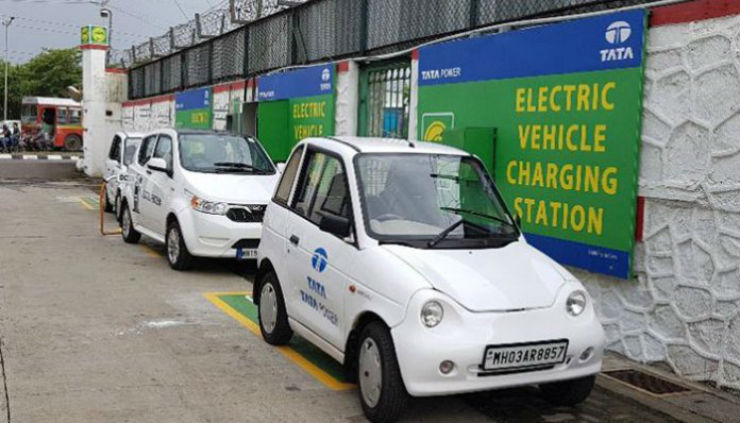Latest News
-
 Chrysler Pacifica Marks Seven Years As Most Awarded Minivan With New Campaign
Chrysler Pacifica Marks Seven Years As Most Awarded Minivan With New Campaign -
 Nissan Magnite Achieves 1 Lakh Unit Sales Milestone: Consistency Helps
Nissan Magnite Achieves 1 Lakh Unit Sales Milestone: Consistency Helps -
 Log9 Unveils Amphion & Nexmile – Revolutionizing EV Asset Management
Log9 Unveils Amphion & Nexmile – Revolutionizing EV Asset Management -
 2025 Cayenne GTS Unveiled: V8 Power And Advanced Dynamics In New Porsche Models
2025 Cayenne GTS Unveiled: V8 Power And Advanced Dynamics In New Porsche Models -
 Vanessa Williams Moderates Panel To Support Parkinson’s Awareness With Drive Toward A Cure
Vanessa Williams Moderates Panel To Support Parkinson’s Awareness With Drive Toward A Cure -
 India's Car Exports Surge In 2023-24: Maruti Suzuki Leads The Way
India's Car Exports Surge In 2023-24: Maruti Suzuki Leads The Way -
 2024 Isuzu D-Max V-Cross Facelift: What To Expect From The Latest Updates
2024 Isuzu D-Max V-Cross Facelift: What To Expect From The Latest Updates -
 Suzuki Access Electric To Electrify The Indian Scooter Market By 2024
Suzuki Access Electric To Electrify The Indian Scooter Market By 2024 -
 Bajaj Pulsar 400 Teaser Out – Launch Date & Other Details
Bajaj Pulsar 400 Teaser Out – Launch Date & Other Details -
 Tata Motors Rolls Out New Bi-Fuel Tata Magic Van, Aiming At Eco-Friendly Transportation
Tata Motors Rolls Out New Bi-Fuel Tata Magic Van, Aiming At Eco-Friendly Transportation
No Charges For Registration Of Electric Vehicles — Government Want To Boost EV Sales
The Government of India is contemplating exempting electric vehicles from paying a registration fee that the Regional Transport Offices charge when a new vehicle is registered. The idea behind the move is to promote electric mobility in the country. The proposal comes from the Ministry of Road Transport and Highways.
According to IndianAutosBlog, The government is expected to make the announcement at the Union Budget which is scheduled for 5 July 2019. The exemption from Registration Fee will be valid across the entire industry, and will include two, three and four wheel electric vehicles.

The Government of India has aggressive plans for mass electrification of two- and three wheelers under the 150cc mark, but the short timeline for large-scale electrification has seen opposition from manufacturers in the country. Companies like Bajaj Auto and TVS Motor Company have said that the deadline of 2023 and 2025 for mass electrification of three- and two-wheelers respectively, is unrealistic and impractical.
Venu Srinivasan, Chairman, TVS Motor Company, said, "The auto industry globally is still a long way away from all of this, as is India. To force an unrealistic deadline for mass adoption of electric two and three wheelers, will not just create consumer discontent, it risks derailing auto-manufacturing in India that supports 4 million jobs. We need gradual and seamless adoption of EVs to avoid such collateral damage and ensure our technology-driven disruption is positive and lasting."
Also, electric two-wheeler manufacturers have expressed their expectations from the budget.
Tarun Mehta, CEO and Co-Founder, Ather Energy said via a press release, "The Central government has been consistently supporting and promoting the adoption of electric vehicles and it has had a positive impact on the market."

"As the industry matures, it will need long term policy support and predictability, which will allow OEMs and ancillary players to make deep investments. We expect the budget this year to focus on 4 areas of concern, that will have impact across the short to long term growth of the electric vehicle industry in India," he added.
Mr Mehta also hopes that the government reviews the tax framework on raw materials and final products. He said that the company wishes to see revised GST rates on electric vehicles. Current GST for electric vehicles stand at 12%.
Mr Mehta said, "As a manufacturer, we would like the Centre to review the current taxation framework applicable on raw material and the final product. There is an inherent inverted duty structure as the GST input on raw material and other overheads are on average of 18 % wherein the output is pegged at 12%."
"The proposed reduction of the GST on EVs to 5% will increase this delta. This structure results in significant working capital blockage. Even with the existing GST inverted duty refund framework in place, there is working capital blockage on the overheads and capital investments. A comprehensive GST refund structure of electric vehicle manufacturers or a reduced GST liability on the raw material should be assessed for seamless cash flows in the long run," he added.
Thoughts About The Plans To Exempt EV's From Registration Fees
We're unsure if this move makes any sense. Electric vehicles and EV manufacturers already have subsidies under the FAME II scheme, and while these are in place, it has not done much to boost sales of the electrics. The government needs to come up with better solutions to boost sales of EVs in the country. Next thing you know is the an electric scooter will be given away for free!



 Click it and Unblock the Notifications
Click it and Unblock the Notifications















